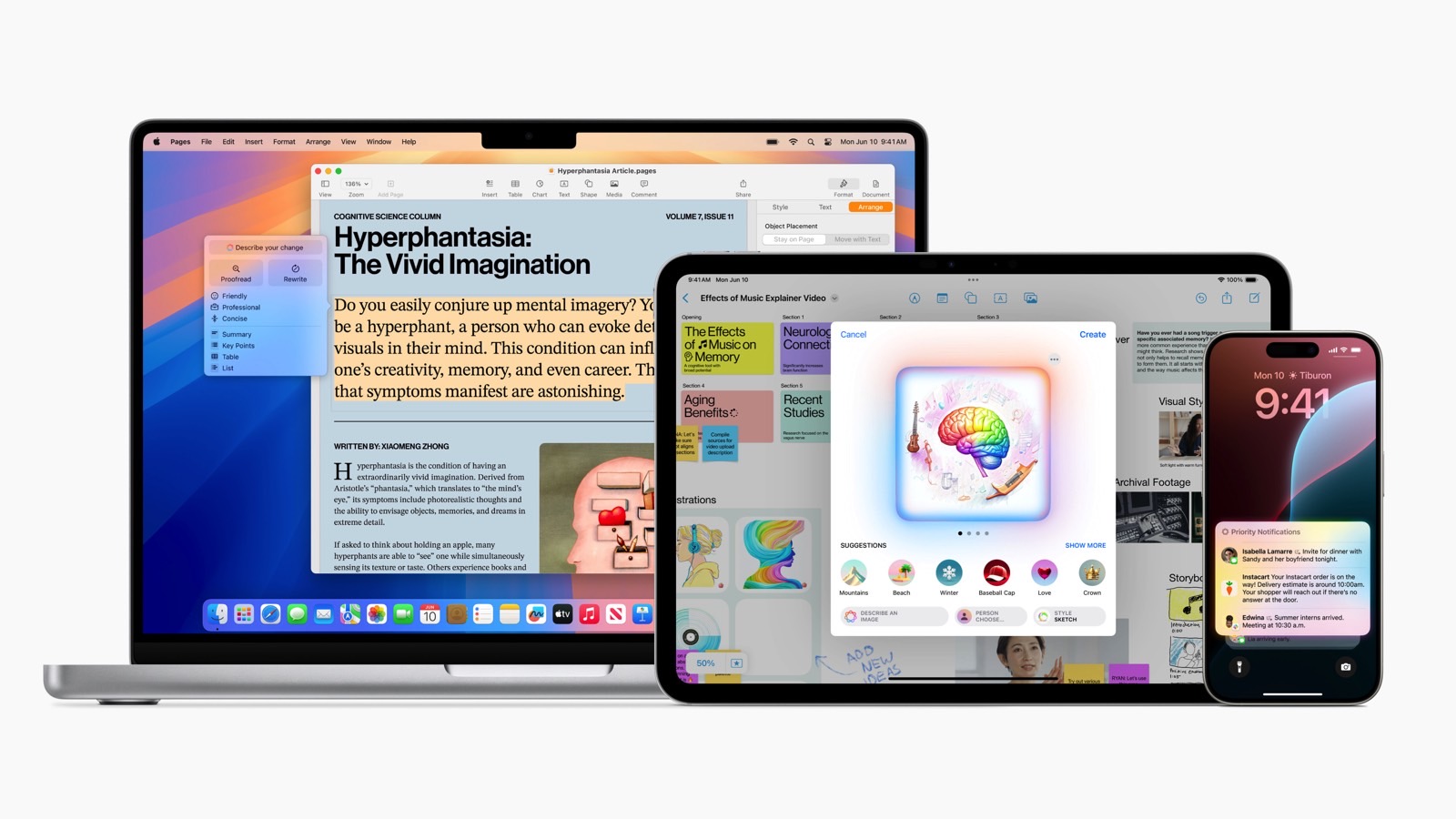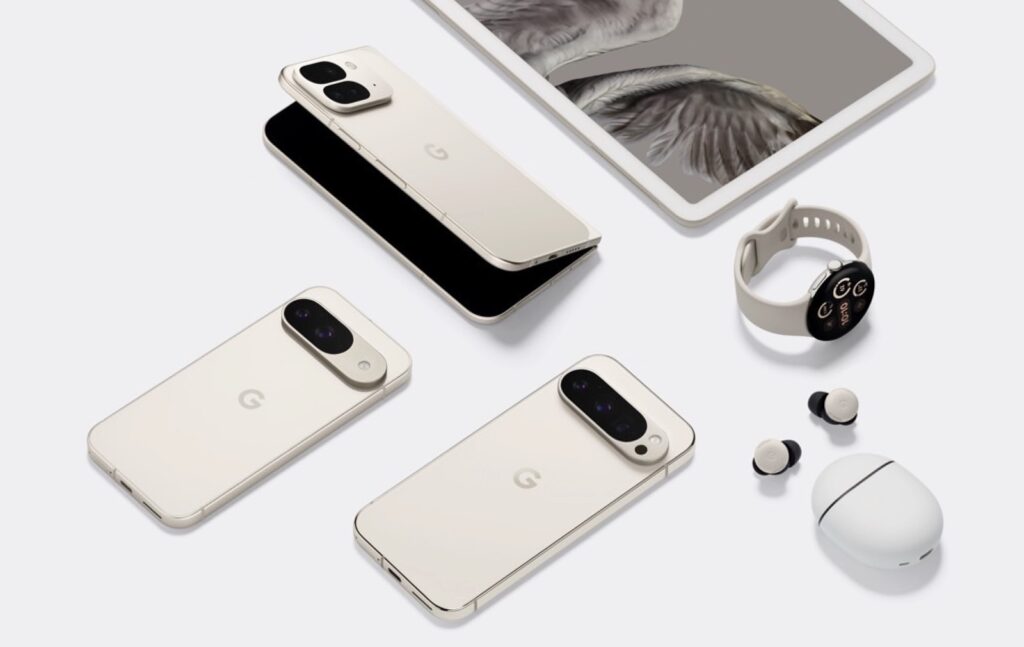Imagine being in the same room as Google’s high-ranking Android execs discussing Apple’s WWDC announcements. Maybe they were following the live stream online to see what Apple Intelligence is all about and how it threatens Gemini.
I bet Googlers were thrilled to see and hear that Apple Intelligence would not match the abilities of Gemini and ChatGPT right away. Just as they must have been envious of some of the vision laid out for Apple Intelligence on iPhone, iPad, and Mac. Whatever the case, I’m sure Google was incredibly happy to hear that Apple’s massive number of iPhones already out in the wild wouldn’t be compatible with Apple Intelligence.
I’m speculating here, sure. But imagine how dangerous the iPhone would have been in a scenario where iOS 18 could bring Apple Intelligence to all the iPhone 13 and iPhone 14 models that are in use right now. It would have given Apple a massive advantage over every adversary, especially Google, even though it is behind Google in AI development.
That’s not what happened. You need the iPhone 15 Pro or 15 Pro Max to try Apple Intelligence right now via the iOS 18.1 beta, or you’ll need to buy an iPhone 16 next month to get access to Apple Intelligence.
This chain of events suddenly gives the Pixel a fighting chance to make an impression in the AI smartphone era. That’s why I think the Pixel 9 is Google’s big Hail Mary play for Gemini against Apple’s emerging Apple Intelligence iPhones.
Google’s Pixel 9 lineup is impressive. From the base $899 Pixel 9 to the high-end (and good-looking) $1,799 Pixel 9 Pro Fold, the new Pixels look amazing. They look like flagship phones, the iPhone of Android the Android ecosystem deserves. The handsets pack big specs upgrades, and Gemini AI is at the core.
Google made it a point to say that all the Gemini features discussed during this week’s Pixel 9 event will be available to users as soon as the Pixel 9, Pixel Watch 3, and Pixel Buds Pro 2 start shipping to buyers.
That was a clear hit at Apple, whose Apple Intelligence suite will roll out in phases. It’s very likely the first Apple Intelligence features available in iOS 18.1 beta right now will be available to users weeks after the mid-September iPhone 16 launch.
This explains why Google hurried to unveil the Pixel 9 series in mid-August rather than mid-October. Google wanted its AI phones in stores before Apple unveiled the iPhone 16. Google wanted Gemini to get all this attention, and nobody could blame them.
The Pixel never had a comparable market share to the iPhone. Google has struggled to sell previous generations, even in years when there was a big demand for them. With the Pixel 9, Google is bringing its phones to significantly more markets than ever.
Google can take advantage of Apple’s delay in AI and its inability to deploy Apple Intelligence to more old iPhone generations. AI makes any iPhone with worse capabilities than the iPhone 15 Pro obsolete.
I say that as an iPhone 14 Pro owner. My device could run an AI-less iOS experience for at least a few years. But I don’t want mobile computing that lacks AI. I will upgrade to an iPhone 16 soon, even if Apple Intelligence is coming to the EU only in the distant future.
The Pixel 9 levels the playing field. It can set the tone for the Pixel vs. iPhone fight in the age of AI. Suddenly, Google has a chance to impress buyers who spend more money on premium devices. Buyers who want AI in their mobile experiences.
Google can even convince some iPhone owners to switch to Pixel 9 for the immediate and superior Gemini AI experience. It would be an incredibly harder task for Google if Apple Intelligence were to run on the world’s iPhone 13s and iPhone 14s. Yes, Gemini is much better. But Apple Intelligence would have a massive reach.
On that note, I’d expect Google to bring several of the Pixel 9’s exclusive Gemini AI features to older Pixel models and other Android devices in the future. But the Pixel 9 will offer the best and newest Gemini AI features.

Still, it’s very clear to me that the Pixel 9 is a play for the future of Gemini AI at a very specific moment in time. It’s a play that only Google can deliver right now. Nobody else can exploit Apple’s AI weakness.
OpenAI doesn’t make its own devices, so ChatGPT is falling behind in becoming a sophisticated AI assistant. Samsung’s Galaxy AI can’t compete with the Apple Intelligence vision or Gemini. Samsung has yet to prove it can match Apple and Google. Microsoft left the mobile business years ago, and its AI assistant efforts are focused on the PC.
While we’re in the early years of AI and AI assistants, some people will start choosing their default AI software right now. That’s the next big battle of the smartphone industry.
I’ll also say the Pixel 9 sets a new bar of quality and performance for the Pixel line. If the Pixel 9 plan succeeds, buyers will have even higher expectations in the future that Google will have to meet. That is if the Pixel 9 series sells well enough.
There’s no guarantee that Google’s plan will work. Pixel sales might not improve significantly in the coming year or in the years that Apple needs to bring Apple Intelligence on par with Gemini. Once Apple catches on to Google’s AI, it’ll be a different fight. One where more iPhones will run the best AI features than Pixels.
The backup plan for that is clear. Google is reworking the entire Android OS around Gemini. That’s already underway. Google said as much as I/O 2024. Android is being built with AI at the core.
But it’s really the Pixel line where Google can deliver the only Gemini AI experience it can fully control. It’s the only AI assistant that will really matter until Siri gets really smart and starts conditioning hundreds of millions of iPhone users into liking Apple’s AI over everyone else.
These AI developments also tell me there might be a place for a ChatGPT gadget, but that’s a topic for a different day.

